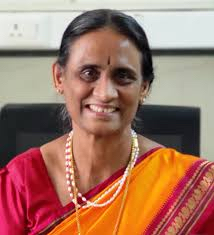
Ethics of organ donation and transplantation – The road traversed
Vasanthi Ramesh1,2.
1Founder Director NOTTO,, Vardhaman Mahavir Medical College and Safdarjung Hospital, New Delhi, India; 2General Surgery, Vardhaman Mahavir Medical College and Safdarjung Hospital, New Delhi, India
Introduction: 10% of transplants worldwide in 2007 were unethical . The declaration of Istanbul(DoI) 2008 on organ trafficking and transplant tourism was developed for tackling ethical issues in transplantation rampant then and Declaration of Istanbul Custodian Group (DICG) revised the declaration by a consultative process in 2018. This study analyzes the success of our mission and further steps to be taken.
Materials and Methods: A literature search on transplantation ethics, legal developments and organ trafficking was done and analyzed
Results: Nature (News) 1988 published “US anger over accusations·of trafficking in infant organs”. Latin American countries sell babies for adoption in the US, existence of illegal adoption services admitted to by US officials . A resolution by the European Parliament (1988) accused the United States of trafficking in organs from human infants. Yosuke Shimazono, in his review “The state of the international organ trade” quotes price for organs from China, Pakistan and Phillipines websites.(Bulletin of WHO, 2007). Hundreds of documents and media reports, scores of journal articles and documents analysed showed media reports were more useful tools. Embassy officials (Middle Eastern countries) have facilitated overseas commercial transplants in Pakistan , Philippines. India mandates embassy relationship affirmation of foreign donors and recipients . Questioning would pose a problem
Sanjay Nagral IJME states des[pite increased transplants reducing shortage, there is paucity of ethical analysis . Indian efforts are the enactment of The Transplantation of Human Organs Act 1994 and its 2011 amendment, the establishment of NOTTO – in line with WHO Guiding principles. . The effects of these legal provisions have been highlighted in “Why NOTTO?” and “Legal Developments in Transplantation in India and the 2011 Amendment of THOA1994”.Travel for transplantation may undermine the country's ability to provide transplant services for its own population – the act specifies that allocations are to be made on priority to Indian nationals and lastly to foreigner. Organ trafficking/ commercial dealings are illegal. Self sufficiency and equitable sharing of organs are facilitated by NOTTO, ROTTOs and SOTTOs, Organ donbation is a financially neutral act . However as enunciated by Yosuke Shimazono the underground organ market existst. Falsification of documents , projecting commercial donors as near relatives is practiced. . Australia, Canada, Israel, Japan, Oman, Saudi Arabia and USA as major organ importing countries. International organ trade demands attention, live donors brought from Republic of Moldova to US. Both recipients and donors from different countries move to a third country. Deaths are reported of patients who went abroad for overseas commercial transplants.
Conclusion: For global benefit from the medical advance of transplantation it is mandatory f to uphold ethical values and prevent organ trade.
